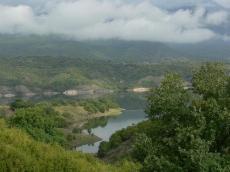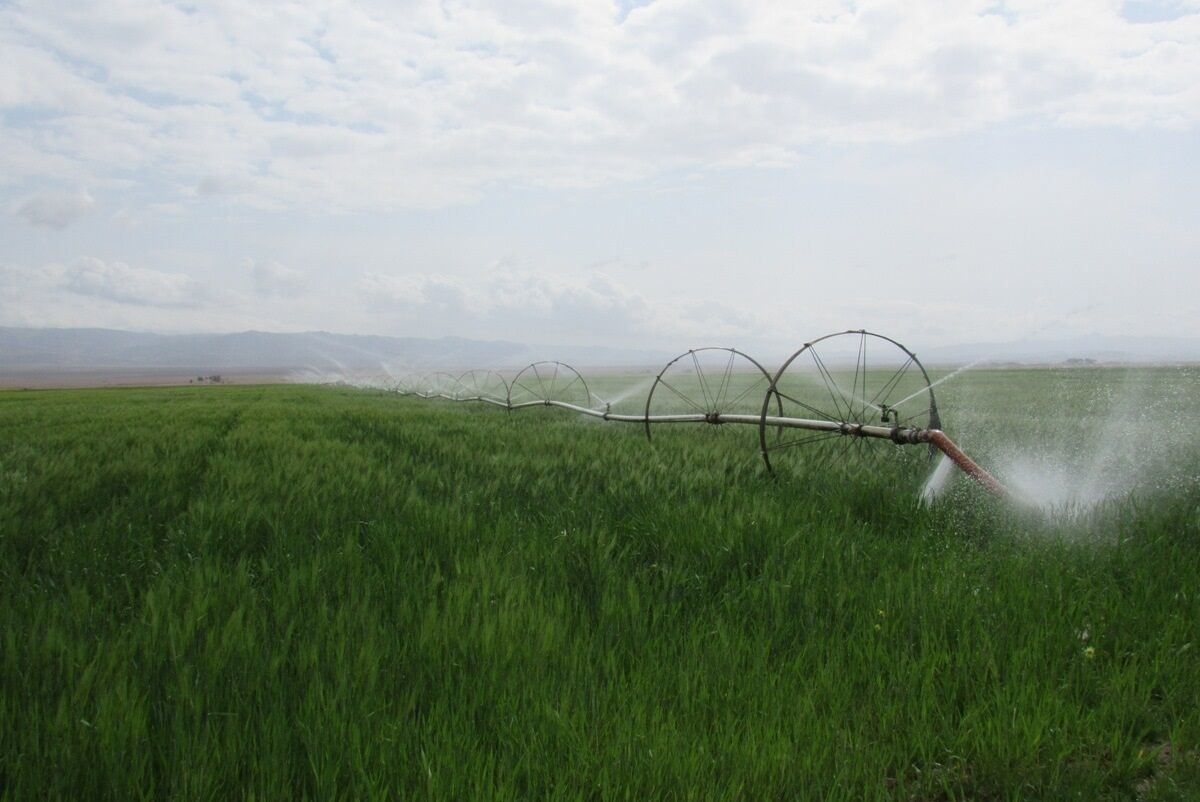Today.Az » Society » Drinking water in Baku is to be supplied from Hakarichay reservoir in Lachin
04 September 2023 [19:30] - Today.Az

The construction of the Hakarichay reservoir and main pipelines departing from it on the territory of the Lachin district is intended to provide high-quality drinking water to the Shusha, Lachin, Gubadli, Zangilan, Jabrayil, Fuzuli, and Aghdam districts as well as the city of Baku, Spokesman of Azerbaijan Amelioration and Water Management OJSC Dilgam Sharifov told, Azernews reports. According to him, the preparation of a feasibility study and construction documentation for the creation of the reservoir began on December 22, 2022, and it is planned to be completed by October 22, 2024. "In general, 37 percent of the work has been completed. Proposals are being developed for the supply of drinking water from the main pipeline departing from the reservoir in an alternative direction. The volume of the Hakarichay reservoir is 91 million cubic meters," Sharifov said. The length of the Hakari River, which originates in Lachin district, is 113 kilometers, and the average annual water consumption is about 10.7 cubic meters per second. The Hakarichay reservoir is intended for collecting drinking water. It is planned to supply water to seven districts located geographically relatively higher with the construction of pumping stations on the main line. As a result of the launch of the project, it will be possible to provide drinking water to about three million people. The Hakarichay reservoir will be a major source of clean water for the people of Azerbaijan. The reservoir will be fed by the Hakarichay River, which is located in the Lachin district of Azerbaijan. The reservoir will be used to store and supply water to the main pipelines, which will then be used to provide clean drinking water to the people of Azerbaijan. The project is a major step forward in providing clean drinking water to the people of Azerbaijan. The project will not only provide clean drinking water but will also help to improve the overall quality of life in the country. The project will also help to reduce the risk of water-borne diseases, which can have a devastating impact on public health. The project is an important step in the development of Azerbaijan. It is a sign of the country's commitment to providing its citizens with the best possible quality of life. With the completion of the project, the people of Azerbaijan will have access to clean drinking water, which will improve their health and well-being. Azerbaijan to irrigate most of the land through the Bargushadchay reservoir The preparation of a feasibility study and construction documentation for the construction of the Bargushadchay reservoir began on November 24, 2022, and should be completed by September 24, 2024, Spokesman of Azerbaijan Amelioration and Water Management OJSC Dilgam Sharifov told. "In general, 25 percent of the work has been completed. Alternative proposals are being developed to provide the population with drinking water from the reservoir. It is planned to irrigate about 8,800 hectares of new land areas in the Gubadli, Zangilan, and Jabrayil districts and fill the canal departing from the Maiden Tower hydroelectric complex, as well as provide high-quality drinking water to the population in Beylagan, Imishli, Saatly, and Sabirabad districts with the construction of the Bargushadchay reservoir and the main irrigation canal on the territory of the Gubadli district," said Sharifov. In order to provide water to these areas, taking into account the difficult geological conditions, it was decided to create the Bargushadchay reservoir on the territory above the city of Gubadli, near the village of Bakhtiar. If water is supplied from the reservoir via a pressure pipeline, it will be possible to install three hydroelectric power plants with a total capacity of 30 megawatts. Conducting a Feasibility Study When conducting a feasibility study for a construction project, it's important to have a good working knowledge of the industry's many moving parts. The TELOS formula is commonly used when conducting feasibility studies in project management. It stands for Technology, Economics, Legal, Organizational, and Schedule. Technology consists of any systems necessary for the project's success. Money also plays a major role in construction, so a cost analysis must be conducted to determine and address the project's financial risks. Legal hurdles must also be identified, such as acquiring the correct permits. Organizational concerns must be addressed, such as making sure the workers are available. Lastly, the Schedule must be considered to ensure the project can be completed within the client's desired timeframe. Types of Feasibility Studies
There are four types of feasibility studies: Technical, Financial, Market, and Organizational. Technical feasibility looks at the hardware and software, existing or new technology, manpower, site analysis, and transportation. Financial feasibility looks at the initial investment and resources to procure capital, such as banks, investors, and venture capitalists. Market feasibility looks at the type of industry, prevailing market, future market growth, competitors, and potential customers. Organizational feasibility looks at the organizational structure of the business, the legal structure of the business or the specific project, and the management team's competency, professional skills, and experience. Contents of a Feasibility Report
A feasibility report should include an executive summary, a description of the product/service, technology considerations, product/service marketplace, identification of the specific market, marketing strategy, organizational structure, schedule, and financial projections. The preparation of the Bargushadchay reservoir feasibility study is an important step in the construction process. It will provide concrete data explaining the basis for its conclusion, as well as options for ensuring the project remains feasible. With the right knowledge and resources, the study should be completed by September 24, 2024.

|